The lack of clarity about responsibilities, processes and monitoring makes it easy for stakeholders to misunderstand and feel frustrated. To overcome this, it is necessary to clearly identify the root cause and synchronously deploy solutions.
Identify the cause
Associate Professor Dr. Le Khanh Tuan - Saigon University, former Deputy Director of the Department of Financial Planning ( Ministry of Education and Training ) pointed out 5 reasons leading to the problems in revenue and expenditure at the beginning of the school year.
Firstly , there is a lack of transparency in management. Circular No. 09/2024/TT-BGDDT clearly stipulates the revenues and expenditures that must be public and how to publicize them. However, many schools have not clearly listed them, and relevant parties do not know the details. Many schools lack a mechanism to ensure the real participation of relevant parties in discussing, deciding, and controlling revenues and expenditures. Lack of transparency can lead to indifference, lack of interest, and thus loss of supervision.
Second, intentionally overcharging or illegally collecting fees. Overcharging has complex origins, possibly due to abuse of power for personal gain; but sometimes due to pressure to have funds to complete activities, some principals propose fees that are not in the regulations. Both of these tendencies are unacceptable. Insufficient awareness, lack of understanding of financial management, personal motivations of managers... can all be the causes of overcharging.
Third, financial management is not good and strict. Many principals do not have basic knowledge of financial management, while there is a lack of specialized accountants and weak accounting skills. The three basic steps of budget preparation, budget execution, and revenue and expenditure settlement are all lacking. Accounting records and documents are not complete, many revenues are not updated in the books; the settlement and control of revenue sources through the State Treasury are not good in some places. Therefore, shortcomings still occur from planning, organization, direction to inspection and evaluation.
Fourth, lack of timely supervision and guidance. Inspections and checks by management agencies are not regular. Internal school inspections are not thorough and thorough. Some newly emerging activities have not been guided promptly, leading to incorrect application. Many schools have not made good use of internal spending regulations to be transparent and specify reasonable revenue and expenditure.
Finally, communication work is not effective. Maximizing the participation of stakeholders in planning and building internal spending regulations is a good way to effectively propagate and explain but has not been paid attention by schools. Managers, staff, homeroom teachers, and parents are not informed in detail about the legal basis, or are not interested in researching, leading to mistakes. Many incidents lead to misunderstandings, frustration, and lack of consensus right from the beginning of the school year.
Ms. Le Thi Trang - Principal of Trung Vuong Secondary and High School (Long Chau, Vinh Long) acknowledged that although there are complete documents guiding this issue, the situation of overcharging still occurs somewhere. The reason is that the propaganda work of related documents on collection at educational institutions is not clear and transparent.
The management and use of revenues have not been strictly controlled; the management of assets from funding sources is still loose somewhere. "It is not excluded that some educational institutions deliberately make mistakes, set their own revenues and ask parents to contribute voluntarily, but in reality it is mandatory and divided equally," said Ms. Le Thi Trang.

Transparent, public, strict handling of violations
Sharing her experience at Trung Vuong Secondary and High School, Ms. Le Thi Trang said: For many years, the school has been open, transparent, and in accordance with regulations on collection fees. At the beginning of the school year, the school mainly collects tuition fees (mandatory); collects student insurance premiums; mobilizes and sponsors according to Circular No. 16/2018/TT-BGDDT; in addition, no other collection fees arise.
The annual fee collection of the Parents' Association is managed by the Parents' Association, with the homeroom teacher coordinating the dissemination and mobilization, ensuring the principles of publicity, democracy, and voluntariness, without any stipulation on average. Parents in difficult circumstances are not required to contribute. The revenue and expenditure from this fund are always made public by the Parents' Association.
“To overcome overcharging, first of all, it is necessary to do a good job of propaganda and dissemination so that relevant parties can grasp the regulations. There are specific regulations on what can and cannot be collected; parents who understand will promptly detect unreasonable charges. It is necessary to promote the role of parents in monitoring the revenue and expenditure of the association fund and socialized funds. Attach the role and responsibility of the head of the educational institution to the revenue and expenditure at their unit.
The expenditures of the Parents' Association must be agreed upon and unified; the final financial reports must be strictly made, public and transparent. Competent authorities need to regularly inspect, check, promptly detect, rectify and strictly handle cases where heads of educational institutions allow overcharging," said Ms. Le Thi Trang.
Mr. Nguyen Van Chanh - Principal of Thuy Phong Primary School (Nam Thuy Anh, Hung Yen ) shares the same view when emphasizing the need to do a good job of propaganda, transparency of revenue and expenditure according to regulations to parents, students and report to local authorities. The school needs to collect correctly and fully according to regulations. Besides, it is also necessary to pay attention to helping students in difficult circumstances to create all conditions for them to go to school.
From an expert perspective, Associate Professor Dr. Le Khanh Tuan emphasized first of all the solution to increase publicity and transparency by organizing relevant parties to participate in giving advice, discussing, deciding on operational plans, revenue and expenditure estimates, and internal spending regulations. Thereby, the principal can take advantage of the strength and intelligence of many parties, while being public and transparent about financial issues.
At the same time, creating understanding and consensus is also creating a mechanism for inspection and supervision right from the planning decision stage. In addition, publicizing the list, revenue and expenditure levels, along with detailed estimates according to Circular No. 09/2024/TT-BGDDT must be strictly followed.
Along with that, review and strictly control revenue and expenditure. The Principal is responsible for directing the preparation of estimates, budget implementation, and settlement of revenue and expenditure. Strictly implement legal conditions for implementing a revenue and expenditure: That item must be included in the approved estimate; norms, regimes, standards, etc. must be in accordance with regulations; the detailed estimate has been approved; revenue/expenditure that needs to be bid must be implemented in accordance with the order and procedures prescribed by the Bidding Law. Resolutely eliminate revenue/expenditure outside of regulations and strengthen the application of revenue and expenditure procedures according to electronic books, limiting cash.
Emphasizing the extremely important solution of prioritizing regular budget spending on education, Associate Professor Dr. Le Khanh Tuan also said that it is necessary to strengthen inspection, examination, and strictly handle violations. Principals should take advantage of inspection and supervision by promoting participation in budget development, developing spending regulations, and organizing internal school inspections well. At the same time, management levels need to conduct surprise inspections at the beginning of the year, publicize conclusions, and handle violators.
It is necessary to improve financial management capacity in schools by training and coaching accountants and school leaders on revenue and expenditure regulations, settlement, and development of internal spending regulations. Innovate training and fostering in the direction of learning to gain knowledge and practical skills, not just learning for certificates. - Associate Professor, Dr. Le Khanh Tuan
Source: https://giaoducthoidai.vn/chan-tan-goc-lam-thu-trong-truong-hoc-ro-trach-nhiem-siet-giam-sat-post742939.html




![[Photo] Cutting hills to make way for people to travel on route 14E that suffered landslides](https://vphoto.vietnam.vn/thumb/1200x675/vietnam/resource/IMAGE/2025/11/08/1762599969318_ndo_br_thiet-ke-chua-co-ten-2025-11-08t154639923-png.webp)



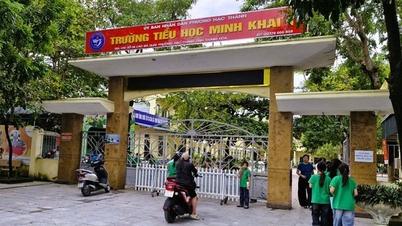

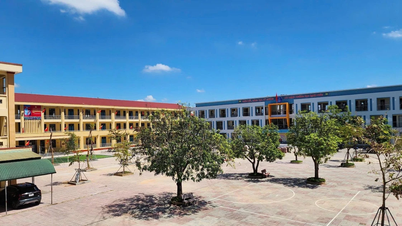



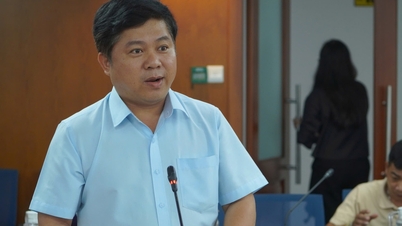


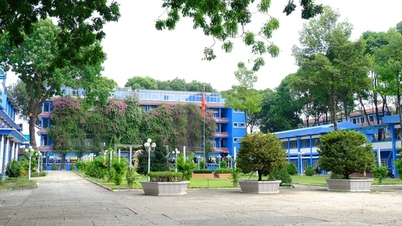


![[Video] University of Foreign Languages - Vietnam National University, Hanoi received the First Class Labor Medal](https://vphoto.vietnam.vn/thumb/402x226/vietnam/resource/IMAGE/2025/11/08/1762614378165_gen-h-z7203450341291-b1f427bb0cccc706a5bcc4b985f90a70-7234-jpg.webp)


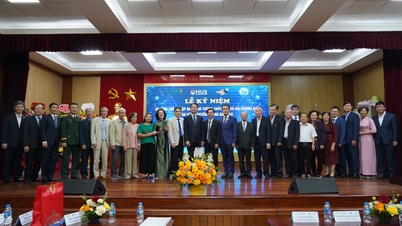




















![[Video] Hue Monuments reopen to welcome visitors](https://vphoto.vietnam.vn/thumb/402x226/vietnam/resource/IMAGE/2025/11/05/1762301089171_dung01-05-43-09still013-jpg.webp)














































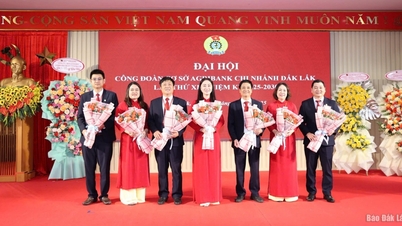

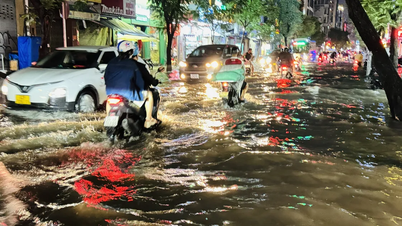


















Comment (0)